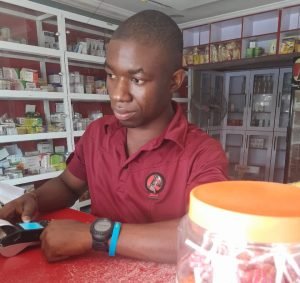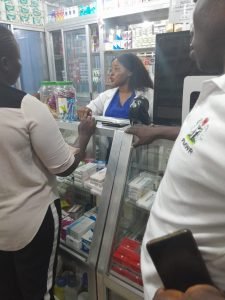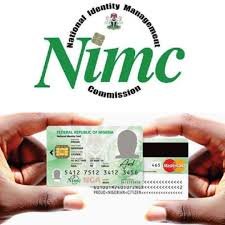Majority of Nigerians are adopting mechanisms to cope with the rising high cost of living in the country. To maximise limited resources, they have struck off ‘unnecessary’ expenditure from their budgets. Gom Mirian writes that one of such expenses is condoms, as many people now opt for skin-to-skin sex despite the health risks involved.
As the local parlance goes, ”body no be firewood.” This means that no matter what happens, people will still seek after things or activities that give them pleasure. One of such most patronised pleasures is sex. The frequency of the act varies, and could be among single to multiple partners, depending on the prowess of the persons involved.

According to data released by The Penguin Atlas of Human Sexual Behaviour in 2020, sex occurs 120 million times a day. That’s about 240 million people having sex daily. Breaking it down shows 10 million people are doing it an hour or 166,666 people per minute. For some, it is an act of love, others for relaxation and for another group, a sort of addiction.
But this pleasure comes with pain. Nigeria has been grappling with the widespread incidence of sexually transmitted HIV/AIDS, with an estimated 1.9 million people living with the disease. Additionally, the country faces a high prevalence of other sexually transmitted diseases (STDs) such as gonorrhea, syphilis, and chlamydia. Condoms have been effective prevention against these diseases, alongside other safe and responsible sexual behaviour.

However, the demand for condoms by Nigerians, residents in the Federal Capital Territory (FCT) in particular, has reduced significantly. African Health Report (AHR) correspondent gathered from the streets of Abuja, that this is so because they have now been classified as non-essential items due to their rising prices. While some condom brands cost 250 naira, others are as high 2,500 naira per pack, which is a significant amount for people on a tight budget.
According to Chidiebere Ndubusi, a pharmacist at EM-ZIK Pharmacy in Kubwa, an Abuja suburb: “Most people come to ask about the price and leave. When Gold Circle cost 100 naira, we could sell four to five cards each day. Now that it costs 250 naira, it is difficult to sell two cards a day. As a result, we reduced stocking them since the business is stagnant.”

Chigozie Emeka of Stable Health Pharmac in Lugbe, another suburb, also lamented the decreased sales. He said: “Although people are still buying, sales are not as high as they used to be, especially for the higher brands. The rising cost of products and transportation is not our fault though. We will shortly add 50 naira to the 250 naira condom,” he said.

On the contrary, H-Medix Pharmacy, located in the high brow area of Wuse 2, Abuja, is still seeing high demand for condoms, especially the more expensive varieties, according to Ifeyinwa Ebechukwu, a pharmacist at the store. She said: “These condoms cost between 1,500 and 2,500 naira.
“Yes, sales are still strong despite the price increase, our customers buy them without anyone complaining,” she said.

‘Buying condom is a waste of money’
A man who spoke to AHR on condition of anonymity shocked many with his peculiar views on safe sex practices. He claimed that purchasing condoms for intercourse is pointless and a waste of money.
He said the increased price of condoms due to the high rate of inflation in the country has made them even more expensive for him as he has sex multiple times in a day, so buying a pack of condoms every day would take a toll on his finances.
“I don’t see why I should spend so much money on condoms when I have sex multiple times a day. The increased price of condoms due to inflation has made it even worse for me. I just can’t afford to keep up with the cost, it’s just too expensive,” he said.

Another Abuja resident who also begged to remain anonymous said he trusts his sex partner and has faith that she is not having sexual relations with other people and therefore, he has no need for condoms.
“I like it raw because it’s more pleasurable, especially with my lover. There is this belief that we are being honest with each other. However, it’s important to be conscious of your health since there are many illnesses such as hepatitis B, which is worse than HIV, but when it comes to sweetness, raw is preferable,” he said, smiling.
Risks associated with unprotected sex higher than condom price – Expert
Dr. Bakare Lawal, the founder and chief executive officer of Safety, told AHR in a phone interview that Nigerians should put their safety first by practising safe sex which may include use of condoms, regardless of the cost.
He stated that the price of condoms shouldn’t be a justification for people to risk their lives because STDs and unplanned pregnancies can be avoided by using them.
“For STDs such as HIV, chlamydia, gonorrhea, and syphilis in Nigeria, the use of condoms remains the most effective way to prevent their transmission. Condoms are also highly effective in preventing unintended pregnancies, especially among unmarried individuals who are not yet ready to have children.
“The cost of treating STDs and unwanted pregnancies is much higher than the cost of purchasing condoms, making it a wise investment in one’s health and financial well-being,” he said.
The danger associated with reduced use of condoms because price hike ot other reasons is worrisome, given the high rates of STDs in Nigeria. Therefore, there is a need for the government and other relevant stakeholders to create more awareness on the benefits of using condoms during sexual intercourse, as well as the consequences of unprotected sex.


